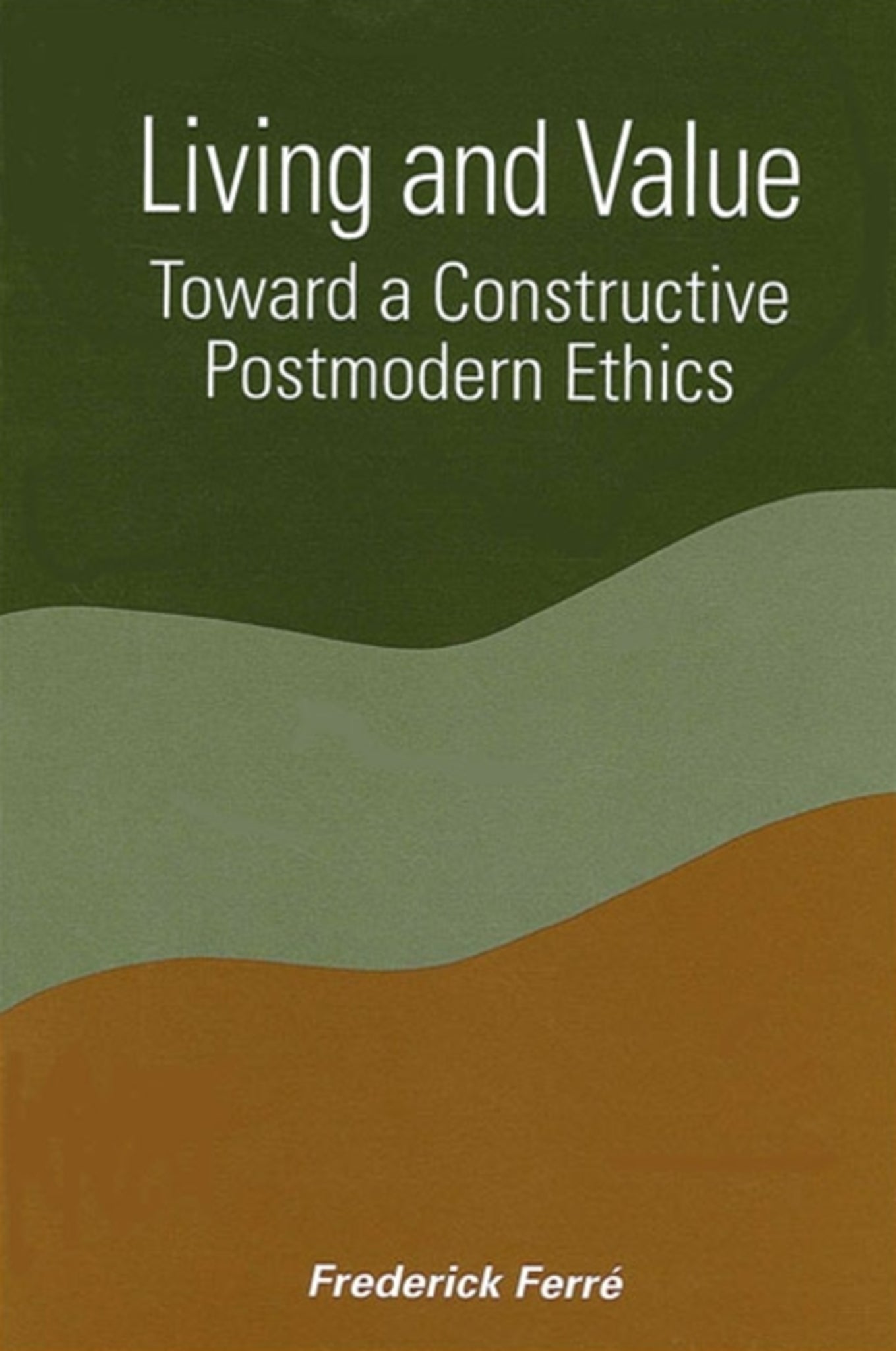We're sorry. An error has occurred
Please cancel or retry.
Living and Value

Some error occured while loading the Quick View. Please close the Quick View and try reloading the page.
Couldn't load pickup availability
- Format:
-
07 June 2001

Based on an ecologically inspired wordview, defends ethics against skepticism and irrealism.
Providing a worthy conclusion to Ferré's trilogy on preserving value in a postmodern world, Living and Value places ethics into the wider context of religion, God, and evil, and offers postmodern suggestions for environmental, technological, and political reforms.


"Ferré finds much of contemporary moral philosophy unsatisfactory. A correct ethics needs a better foundation, and this Ferré finds in the process philosophy of Alfred North Whitehead. Ferré offers an unusual and valuable way of looking at the world, and his book is highly recommended." — Library Journal
"A practical and theoretical guide to those perplexed about the major issues of our day, the book provides a comprehensive historical review of Western ethics as well as a valid and persuasive counterproposal to the twin contemporary choices of ethical skepticism and ethical irrealism. By providing such a clearly written and competently argued account of 'personalistic organicism,' Ferré provides the present day cultural debate with a comprehensive and concrete alternative to the negative polemics characterizing so much of contemporary postmodern philosophy." — Joseph Grange, author of The City: An Urban Cosmology
"Postmodernism is dominated by those who, rightly or wrongly, give the impression that their ethics amounts to either a Derridean relativism or a Foucauldian hermeneutics of suspicion (often connected, as I see things, to a revitalized concern for Hobbesian power). It is extremely important that we have a constructive postmodern ethics, a la Ferré." — Daniel Dombrowski, author of Kazantzakis and God
Preface
Introduction to SUNY Series in Constructive Postmodern Thought
David Ray Griffin
1. How Should We Approach Ethics?
As a Way if Thinking
As a Way of Judging
As a Way of Acting
Part One: Ethics
2. How Did We Get Here?
Early Pretheoretical Days
Classical Premodern Ethical Theory
Christian Premodern Ethical Theory
Early Modern Ethical Theory
Late Modern Ethical Theory
3. Ethics and Knowing
Ethical Experiencing
Ethical Thinking
Ethical Knowing
Coda: Overcoming Disconnections
4. Ethics and Being
The Locus of Value
Freedom, Obligation, and Responsibility
Persons and Organisms
Part Two: Ethics and Religion
5. Context of Contexts
Religious World Models
Assessing Religious World Models
6. Question of God
Question of Proofs
Question of Purpose
Question of Pluralism
7. Ugliness and Evil
Evil as Ugliness
Types of Ugliness
Cultural Ugliness
Natural Ugliness
Handling Ugliness
Part Three: Ethics and Society
8. Natural Values
Extraterrestrial Values
Earthling Values
Human Values
9. Technological Values
Technologies of the Organic
Technologies of the Personal
10. Political Values
Creativity
Homeostasis
Mutuality
Works Cited
Note on Centers
Name Index
Subject Index



